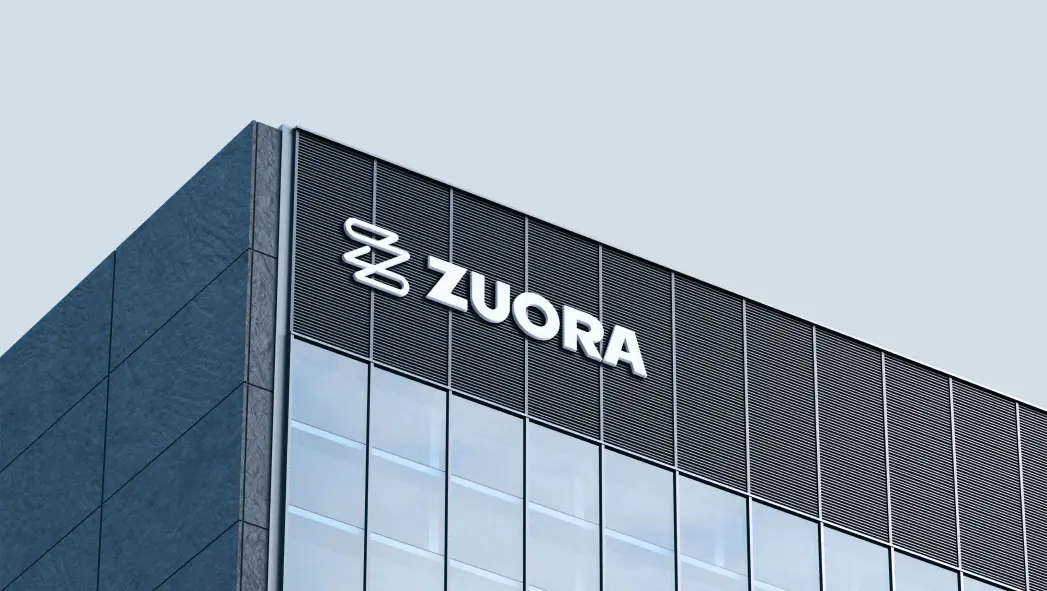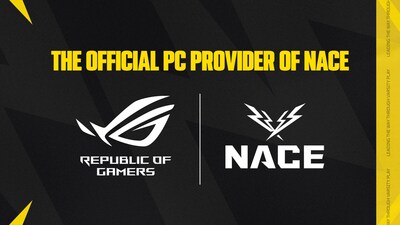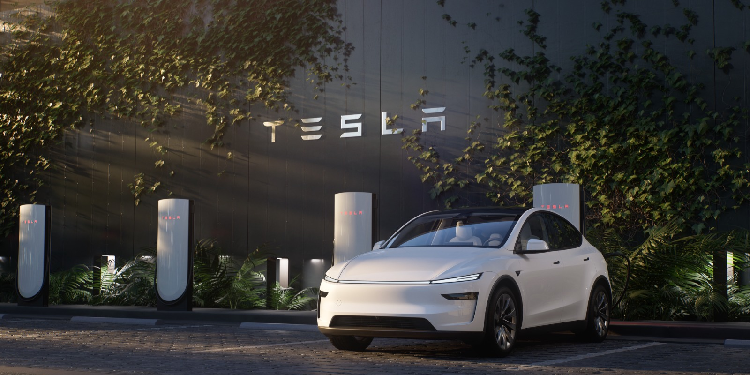Technology
Why 24 Hour Fitness Didn’t Wait for Cloud Transformation

The conventional wisdom in enterprise technology suggests waiting for multi-year ERP transformations to complete before modernizing adjacent systems. Why complicate an already complex migration with additional integrations? 24 Hour Fitness threw that playbook out the window – and the results are transformative.
The fitness giant, operating 249 clubs across nine states with nearly 4 million members, challenged the “wait-and-see” approach by implementing Zuora’s monetization platform while maintaining complete flexibility for their ERP strategy.
Picture running a fitness empire where billing cycles take six days every month. For 24 Hour Fitness, this wasn’t just operational friction – it was a strategic constraint limiting market responsiveness and cash flow optimization.
Their existing billing infrastructure was deeply intertwined with legacy systems, making modernization seem dependent on broader ERP transformation timelines. New product launches required significant investment and months of development time, creating barriers to innovation.
Katie Healon, Senior Director of Treasury and Payment Processing at 24 Hour Fitness, initially harbored natural skepticism about moving from a “stable” legacy system. But analysis revealed that staying put carried greater risks – missed opportunities, competitive disadvantage, and constrained cash flow management.
Zuora’s ERP-agnostic integration framework provided 24 Hour Fitness with a solution that complemented existing systems while preserving future flexibility. This approach recognized a fundamental truth: transformation doesn’t have to be all-or-nothing.
The implementation delivered immediate results. 24 Hour Fitness transitioned from six-day monthly billing cycles to daily billing capability – unlocking significant cash flow advantages and unprecedented flexibility in managing subscription lifecycles.
The transformation eliminated the investment barrier for new product launches. Where previously launching new membership tiers required extensive custom development, Zuora’s flexible billing software supports any mix of recurring, usage-based, one-time and hybrid pricing models.
Traditional order-to-cash automation can take 3+ years to implement as part of larger cloud ERP transformations, often leaving systems inflexible despite migration. By implementing a purpose-built monetization platform alongside existing systems, 24 Hour Fitness gained capabilities nearly impossible within traditional ERP frameworks.
The company’s approach demonstrates how modern billing software can complement existing ERPs to alleviate manual work and custom development complexity. Rather than waiting for broader transformation completion, they achieved immediate operational efficiency while positioning for scale regardless of future strategy.
In today’s market, speed to market determines competitive success. Healon noted that 24 Hour Fitness constantly explores flexibility in pricing structures, billing cycles, and payment methods. The COVID-19 pandemic accelerated the need for subscription offering flexibility.
Daily billing capability proved particularly valuable during pandemic recovery. The company emphasizes that the best way to engage fitness customers is getting them to work out. Daily billing cycles enabled responsive membership management when engagement patterns changed dramatically.
The transformation offers key insights for enterprise leaders facing ERP migration timelines: parallel modernization works, cash flow impact is immediate, innovation barriers fall, and integration flexibility preserves options.
What this means for ERP Insiders
Prioritize cash flow optimization during migration windows. The 24 Hour Fitness transformation from six-day to daily billing cycles demonstrates that cash flow optimization can’t wait for ERP completion. Companies implementing Zuora’s order-to-cash solutions typically see improvements in Days Sales Outstanding (DSO) and customer satisfaction metrics. With Zuora’s ability to scale billing for high-volume transactions and easily process 300K+ invoices per hour, tech leaders should evaluate subscription billing implementations that can deliver immediate working capital improvements while ERP migrations progress. The quantifiable impact: moving from monthly to daily billing cycles can improve cash flow by 15-30 days, representing millions in working capital for large subscription businesses.
Deploy ERP-agnostic integrations to preserve future flexibility. 24 Hour Fitness’s success stems from choosing technology that doesn’t lock them into specific ERP vendor roadmaps. Zuora’s native integrations with major ERPs including NetSuite, Workday, and SAP enable seamless data flow between systems while providing audit-ready financial data for different stages of order-to-cash. Tech leaders should implement API-driven architectures with microservices and REST APIs that simplify data exchange between multiple platforms, reducing the risk of integration failures. This approach ensures billing modernization investments remain valuable regardless of future ERP decisions, with customers like Sage reporting 32% subscription growth after implementation.
Eliminate innovation bottlenecks with flexible billing architectures. The investment barrier that 24 Hour Fitness eliminated for new product launches represents a common constraint in traditional ERP-dependent billing systems. Zuora’s Extension Studio and Integration Hub allow organizations to create custom solutions and quickly adapt to evolving business needs, with over 50 pricing models supported out-of-the-box. Companies like NCR reduced implementation time from months to weeks, freeing up at least five FTEs worth of work and enabling previously unavailable metrics like Monthly Recurring Revenue (MRR). Tech leaders should implement billing platforms that support rapid product iteration and pricing experimentation, enabling faster market response during the critical years when ERP transformations limit other technology initiatives.
Technology
ASUS ROG Named Official PC Provider for Collegiate Esports NACE

Partnership between ASUS ROG and NACE to deliver high-performance hardware to varsity intercollegiate esports

Through this partnership, ASUS ROG will deliver top-tier hardware solutions to fuel high-performance play at NACE’s premier LAN events. ASUS Republic of Gamers will serve as the presenting sponsor of the NACE Spring 2026 National Playoffs & Spring 2026 Grand Finals, bringing additional visibility and support to the pinnacle event of varsity esports.
ROG will equip athletes with a comprehensive gaming desktop fleet featuring premium systems including the flagship ROG G700 and ROG GM700 models, along with future models. Each tournament setup will include a complete ROG ecosystem with matching peripherals including headsets, keyboards, mice, and mousepads, creating a unified gaming experience. These high-performance systems will power the main stage competitions, delivering the reliable, tournament-grade performance that varsity competition demands.
“Collegiate esports showcase some of the most skilled and dedicated competitors in gaming today, and we are proud to support their pursuit of excellence,” said Benjamin Yeh, ASUS Computer International President. “Through our partnership with NACE, we are ensuring that student-athletes, including those at the Varsity level, have access to ASUS machines with the hardware capable of supporting top-tier competitive play that matches their talent and ambition.”
At the Spring 2026 Grand Finals, the ASUS ROG team will be onsite with an interactive booth experience designed to engage students, schools, and spectators alike. Attendees will have the opportunity to explore the latest in ASUS ROG gaming technology, test high-performance setups firsthand, and connect directly with ASUS representatives. The booth will serve as a hub for hands-on product demos, giveaways, and insight into how ASUS ROG is powering the future of collegiate esports.
“At NACE, our mission centers on advancing varsity-level esports, and our member institutions are home to some of the top teams in the collegiate space. All of our student competitors, committing to a full season of high standards, deserve access to elite hardware at our marquee LAN events — and that’s exactly what ASUS ROG brings to the table through this partnership. We’re excited about the opportunities this collaboration creates to further our mission and deliver elevated experiences for our member schools,” said Riley Long, Executive Director at NACE.
An additional component to the partnership is NACE’s newly launched content series, ASUS ROG Play of The Week. This series highlights the top plays from students & teams across NACE competitive play each week.
As the Official PC Provider of NACE, ROG strengthens its educational commitment by using esports to develop student skills in teamwork, communication, and strategy while creating pathways for students to explore STEM careers, game design, and content creation. ROG’s premium gaming setups provide immersive experiences that engage students and empower the next generation of digital innovators.
About ASUS Republic of Gamers (ROG)
Republic of Gamers (ROG) is an ASUS sub-brand dedicated to creating the world’s best gaming hardware and software. Established in 2006, ROG offers a complete line of innovative products recognized for performance, quality, and design. Learn more at rog.asus.com.
Beyond creating next-gen gaming products, ROG is empowering the next esports revolution in education, dedicated to developing students’ skills and inspiring them to prepare for a digital future. Learn more at ROG Esports in Education Solutions | ASUS US
About NACE (National Association of Collegiate Esports)
The National Association of Collegiate Esports (NACE) is the largest and most established association of varsity esports programs at colleges and universities across

![]() View original content to download multimedia:https://www.prnewswire.com/news-releases/asus-republic-of-gamers-named-official-pc-provider-of-the-national-association-of-collegiate-esports-302563969.html
View original content to download multimedia:https://www.prnewswire.com/news-releases/asus-republic-of-gamers-named-official-pc-provider-of-the-national-association-of-collegiate-esports-302563969.html
SOURCE ASUS Computer International
Technology
BETBY CELEBRATES SUCCESS AT SBC SUMMIT LISBON 2025 WITH ESPORTS SUPPLIER OF THE YEAR AWARD

Our website uses cookies, as almost all websites do, to help provide you with the best experience we can.
Cookies are small text files that are placed on your computer or mobile phone when you browse websites.
Our cookies help us:
– Make our website work as you’d expect
– Remember your settings during and between visits
– Offer you free services/content (thanks to advertising)
– Improve the speed/security of the site
– Allow you to share pages with social networks like Facebook
– Continuously improve our website for you
– Make our marketing more efficient (ultimately helping us to offer the service we do at the price we do)
We do not use cookies to:
– Collect any personally identifiable information (without your express permission)
– Collect any sensitive information (without your express permission)
– Pass personally identifiable data to third parties
– Pay sales commissions
Technology
5 Bold Reasons Pope Leo XIV’s AI Rejection Protects Humanity

Pope Leo XIV has rejected the idea of an AI-powered papal avatar, warning that unchecked technological processes could erode human dignity and spiritual connection. His stance calls for moral leadership in the digital age.
Pope Leo XIV Rejects AI Papacy “The Human Heart Will Be Lost”
In a bold and deeply philosophical stance, Pope Leo XIV has publicly refused to authorize the creation of an artificial intelligence version of himself. The proposal, which involved developing a digital avatar capable of answering questions and simulating papal audiences, was met with firm resistance. Pope Leo XIV told biographer Eloise Allen in an interview statement:
“If there’s anybody who should not be represented by an avatar, I would say the Pope should be high on the list.”
The pontiff revealed that someone had recently requested permission to build an “artificial Pope” that users could interact with online. Pope Leo XIV’s response was unequivocal, saying that “I’m not going to authorize that.” For Pope Leo, the idea of digitizing the papacy undermines the sacredness of human connection and spiritual leadership.
His rejection isn’t rooted in technophobia. In fact, Pope Leo has previously acknowledged the transformative power of artificial intelligence, likening it to a new Industrial Revolution. But this comparison is far from celebratory, as he draws a parallel to Pope Leo XIII’s 19th-century treatise Rerum Novarum, which addressed the exploitation of workers during the first Industrial Revolution. Today, Pope Leo XIV sees AI as a similar threat-one that could deepen inequality and strip away human dignity.
A Call for Moral Leadership in the Digital Age

Pope Leo’s concerns go way beyond avatars and algorithms. He warns of a future where automation benefits only a privileged few, leaving the majority with diminished opportunities for meaningful lives. Pope Leo XIV said:
“If we automate the whole world and only a few people have the means to live well, there’s a huge problem coming down the line.”
He’s particularly critical of wealthy investors who pour resources into AI development while ignoring the ethical implications, as Pope Leo cautioned the people:
“Extremely rich people are investing in artifical intelligence but totally ignoring the value of human beings and of humanity as a whole.”
For Pope Leo, this isn’t just a technological issue, as it can develop into a moral crisis. The Church insisted on becoming a guiding voice in its digital age. Without moral intervention, he fears society will become dominated by technology, reducing people to nothing more than mere pawns in a wicked chess game, for he warned:
“The danger is that the digital world will go on its way and we will become pawns, or left by the wayside.”
Despite his critiques, Pope Leo isn’t anti-progress. He believes that science and technology can serve humanity, but only if they remain grounded in human relationships and compassion, as he quoted:
“To lose that relationship will leave science as an empty, cold shell that do great damage to what humanity is about.”
In an era increasingly shaped by digital innovation, Pope Leo XIV’s message is clear: progress must never come at the cost of the human soul. As someone who has been a Catholic all my life, I was having questions about AI and the conflict that the Church has with dealing with AI. I’m personally glad that Pope Leo is addressing the topic and can make a positive contribution to the way of progress without harming the human soul for Christ, our Lord.
Thanks for reading. Follow Total Apex Gaming for more new updates on the topic of AI, and be sure to follow Total Apex Entertainment for more juicy news content.
Technology
GRID Acquires Bayes Esports Assets

GRID, a game data and technology platform, has acquired the intellectual property assets of Bayes Esports following the company’s liquidation proceedings and will integrate the technology into its GRID Bet division.
The acquisition integrates strategic technology components developed by Bayes over nearly a decade, including live data trading solutions, prediction models, and fan engagement tools, into the GRID Data Platform. These technologies will now be powered exclusively by official esports data available only on GRID, accelerating product development and driving innovation across GRID’s entire portfolio, with a particular focus on GRID Bet, the company’s comprehensive solution for regulated esports betting.
“The acquisition of Bayes assets further accelerates GRIDs capabilities to create value for rights holders in esports and shape the next phase of esports betting in particular,” said Moritz Maurer, Founder & CEO of GRID.
Technology
A Strategic Leap in Ergonomic Innovation for the Hybrid Work Era

The global shift toward hybrid and remote work has redefined the demand for ergonomic technology, with Logitech’s latest Zone Wireless 2 ES and Zone Wired 2 headsets emerging as pivotal tools for productivity. These devices, engineered with gaming-inspired ergonomics and AI-driven noise cancellation, address the dual challenges of physical comfort and communication clarity in modern work environments. As remote work adoption accelerates, Logitech’s strategic focus on ergonomic innovation positions it to capture a growing market segment.
Ergonomic Design: Bridging Gaming and Professional Use
Logitech’s Zone headsets integrate gaming-inspired ergonomic principles to enhance user experience during prolonged use. The adjustable head strap distributes pressure evenly, a feature borrowed from high-end gaming headsets, ensuring all-day comfort for professionals in open-plan offices or home workspaces Logitech Introduces New Zone Headsets to Help Workers Escape the Distraction Trap[1]. Rotating ear cups and a 270-degree reversible microphone boom further enable personalized fit and positioning, reducing physical strain and improving audio quality Forbes: Logitech Introduces New Zone Headsets To Help Workers Escape the Distraction Trap[2]. These design choices reflect Logitech’s ability to adapt gaming technology for professional contexts, a trend that aligns with the 10.30% CAGR projected for the global ergonomic consumer goods market from 2025 to 2033 Ergonomic Consumer Goods Market is expected to triple its size by 2033[3].
AI-Powered Productivity: Noise Cancellation and Platform Integration
The Zone Wireless 2 ES and Zone Wired 2 leverage hybrid active noise cancellation (ANC) and AI-powered microphones to mitigate common distractions such as keyboard noise, ambient chatter, and foot traffic Logitech Unveils Zone Wireless 2 AI-Powered Headset[4]. This technology dynamically adjusts to environmental conditions, ensuring uninterrupted focus during virtual meetings or deep work sessions. Additionally, the headsets are certified for Microsoft Teams, Zoom, and Google Meet, streamlining workflows and reducing IT support costs for enterprises Enterprise Headset Market Insights Report 2025-2030[5]. For investors, this integration with collaboration platforms underscores Logitech’s alignment with the $1.89 billion enterprise headset market by 2030, driven by hybrid work adoption Professional Headset Market Forecast 2025-2032[6].
Market Dynamics: Growth Drivers and Competitive Positioning
The professional headset market is forecasted to grow at a 13.3% CAGR from 2025 to 2032, fueled by demand for AI-enhanced features and multi-device compatibility Office Headsets Market Size & Forecast [2033][7]. Logitech’s emphasis on lightweight design, extended battery life (up to 25 hours with ANC enabled), and sustainability—through recycled materials and replaceable components—strengthens its competitive edge Logitech Marketing Strategy 2025: A Case Study[8]. The company’s marketing strategy, which combines data-driven campaigns and influencer partnerships, has already driven a 53% sales increase and a 4:1 return on ad spend Headset 2025-2033 Analysis: Trends, Competitor Dynamics[9].
Investment Implications
Logitech’s Zone headsets are not merely incremental upgrades but strategic responses to evolving work trends. By addressing ergonomic comfort and AI-enhanced productivity, the company is well-positioned to capitalize on the $15 billion global headset market by 2033 Zone Wireless 2 Becomes First Headset to Earn Microsoft Teams Certification[10]. For investors, the combination of robust market growth, platform certifications, and Logitech’s established brand equity in ergonomic tech presents a compelling case. As hybrid work models solidify, the Zone series exemplifies how innovation in form and function can drive both user satisfaction and long-term profitability.
Technology
Tesla Joins Forces with NODWIN Gaming to Showcase Model Y at BGMS Season 4 Grand Finals

New Delhi: In a groundbreaking move for Indian esports, NODWIN Gaming, South Asia’s leading gaming and esports company, has partnered with electric vehicle giant Tesla for the Grand Finals of the Battlegrounds Mobile India Masters Series (BGMS) Season 4. The collaboration marks Tesla’s first-ever association with an Indian esports tournament, reflecting the rising commercial and cultural relevance of competitive gaming in India.
The BGMS Season 4 Grand Finals, scheduled from September 12 to 14, will see the top 16 esports teams battle it out in an electrifying LAN event. At the venue, fans will get an exclusive chance to witness Tesla’s redesigned Model Y—one of the world’s best-selling EVs—up close. The vehicle will also be part of a Tesla Light Show, a signature global spectacle that adds a tech-powered visual flourish to the finals’ opening.
The timing of this collaboration is significant. Tesla recently established its presence in India by opening experience centers in Mumbai’s BKC and Delhi’s Worldmark Aerocity, signaling its interest in deeper engagement with Indian consumers. Esports, especially among Gen Z and millennials, offers Tesla a direct channel to connect with this digitally native, tech-forward audience.
NODWIN Gaming and Tesla both embody a shared vision of innovation, disruption, and leadership in technology. Tesla’s seamless integration of gaming and entertainment within its vehicles aligns naturally with the dynamic and fast-growing esports ecosystem in India.
“At NODWIN Gaming, every season of BGMS is about pushing boundaries, and this year we’re proud to have Tesla join the journey. Their association reflects how esports in India has grown into a mainstream cultural and commercial platform that forward-looking brands want to engage with. Together, we’re shaping how global brands and gaming communities connect, here in India and beyond. Collaborations like this show what’s possible when innovation and culture come together,” said Akshat Rathee, Co-founder and Managing Director of NODWIN Gaming.
According to the FICCI-EY Media and Entertainment Industry Report 2025, brand participation in Indian esports is projected to increase from 68 in 2024 to 75 in 2025, supported by the rise of new gaming titles, larger tournaments, and deepening fan engagement. BGMS Season 4 reflects this momentum, attracting an impressive lineup of brand partners.
Key sponsors include OnePlus as Title Sponsor and Official Smartphone Partner, Android as Co-Title Sponsor, and TVS Motor Company, now in its third year of association. Other participating brands include Red Bull, Duolingo English Test, Swiggy, and Bisleri, demonstrating the category’s ability to draw marquee global and Indian brands alike.
The BGMS Season 4 Grand Finals will be broadcast live from 5 PM to 8 PM IST on Star Sports Khel and JioHotstar, reaching millions of viewers and reinforcing esports as a powerful entertainment format in India.
-

 College Sports3 weeks ago
College Sports3 weeks agoNHL rookies weigh in on NCAA, NHL rule changes, new uniforms
-

 Professional Sports3 weeks ago
Professional Sports3 weeks agoRecovering after a workout at UFC Gym
-

 College Sports3 weeks ago
College Sports3 weeks agoA surprise Kentucky star is about to take college basketball by storm
-

 Motorsports2 weeks ago
Motorsports2 weeks agoToyota Celebrates Its 200th Win In The NASCAR Cup With Denny Hamlin’s Victory At World Wide Technology Raceway
-

 NIL2 weeks ago
NIL2 weeks agoNIL has Changed the Trajectory of College Football For the ACC
-

 College Sports3 weeks ago
College Sports3 weeks agoNews: Super Bowl ads, Streameast, Fox Sports and more
-

 NIL2 weeks ago
NIL2 weeks agoNCAA Bans 3 College Basketball Players for Betting on Their Own Games
-

 Motorsports2 weeks ago
Motorsports2 weeks agoSammy Smith, JR Motorsports Renew Partnership in 2026
-

 Rec Sports2 weeks ago
Rec Sports2 weeks agoSatish Sharma joins virtual meet with Union minister on youth, sports development
-

 NIL2 weeks ago
NIL2 weeks agoNew money in college football means ‘hot seat’ arrives quicker for coaches
































